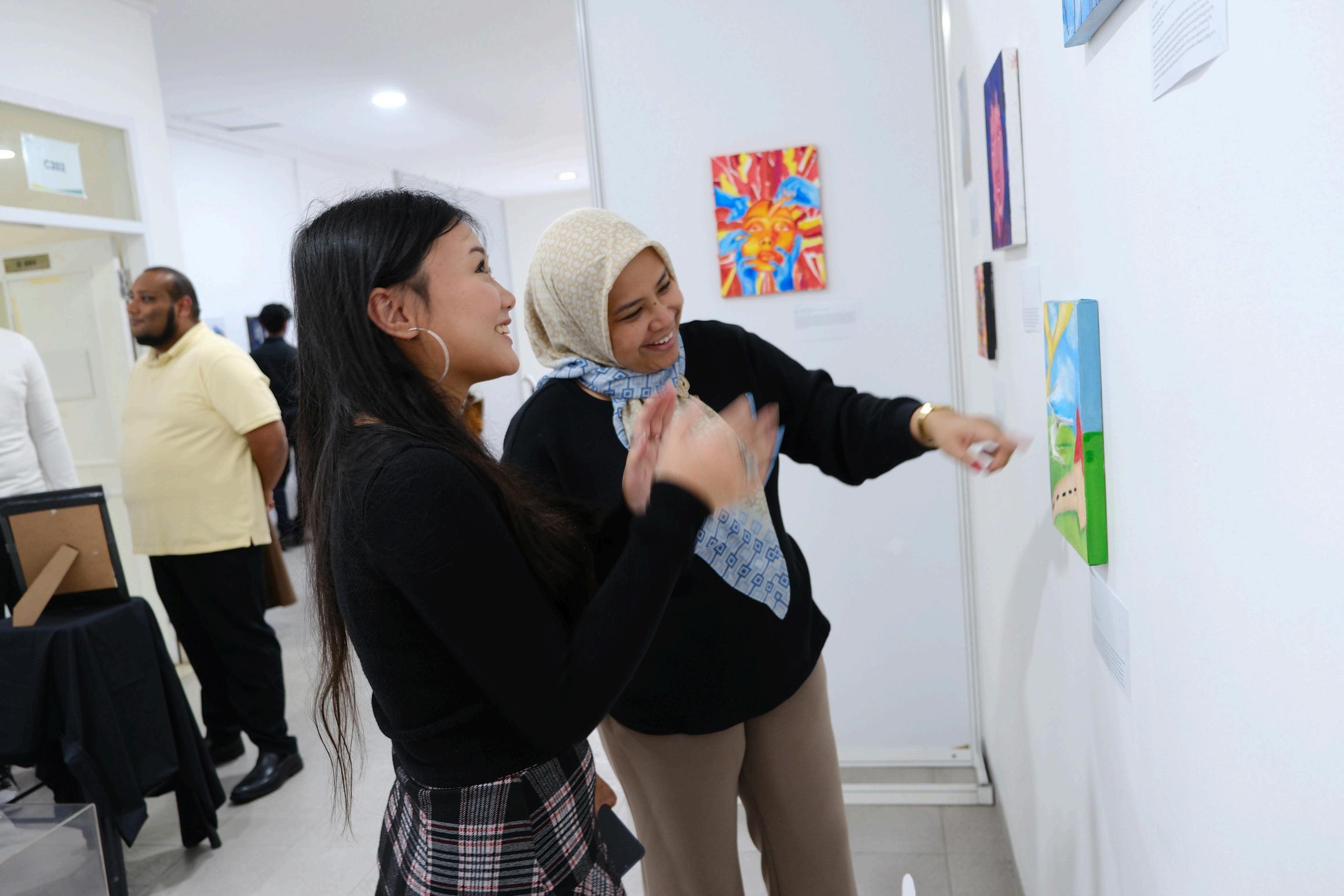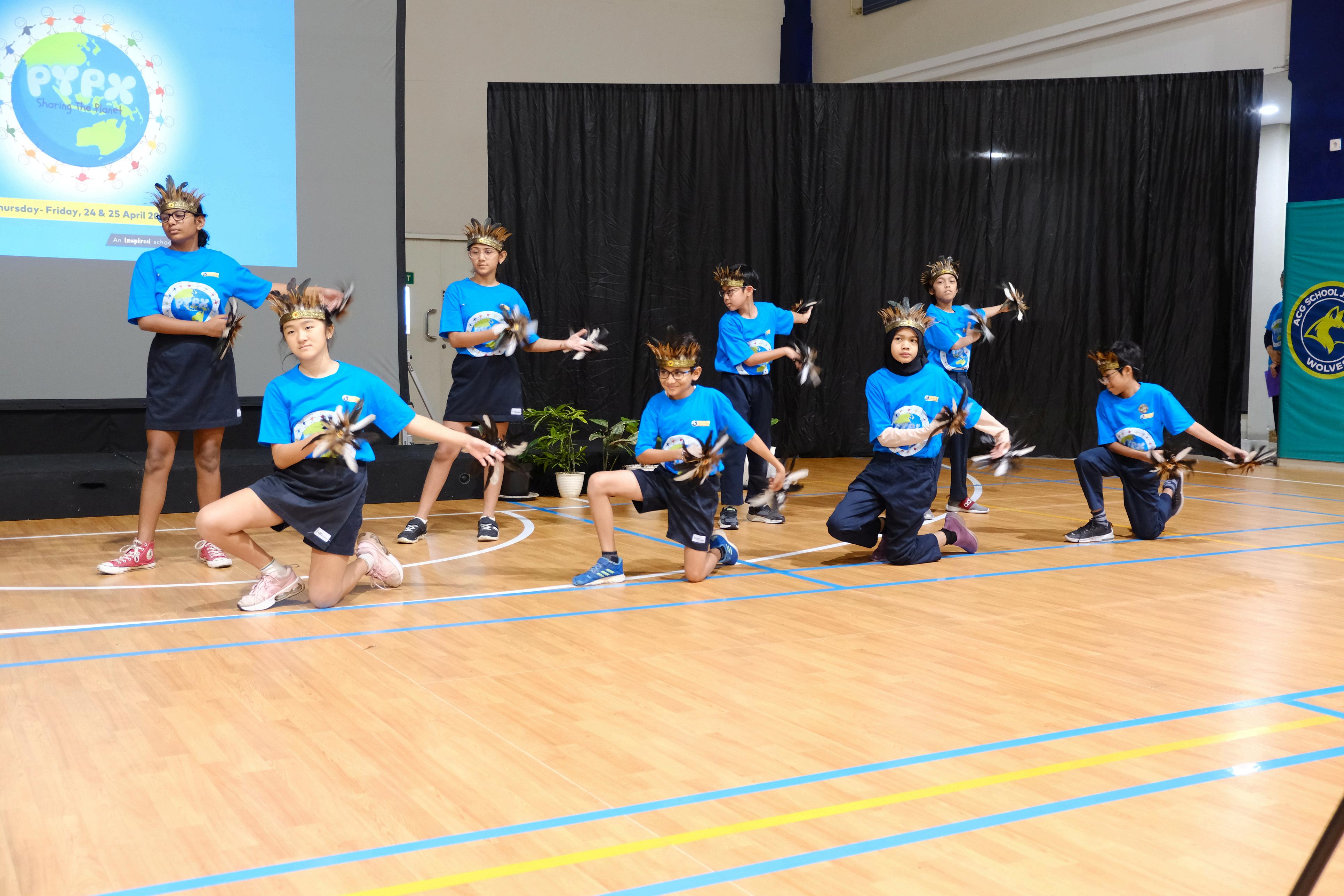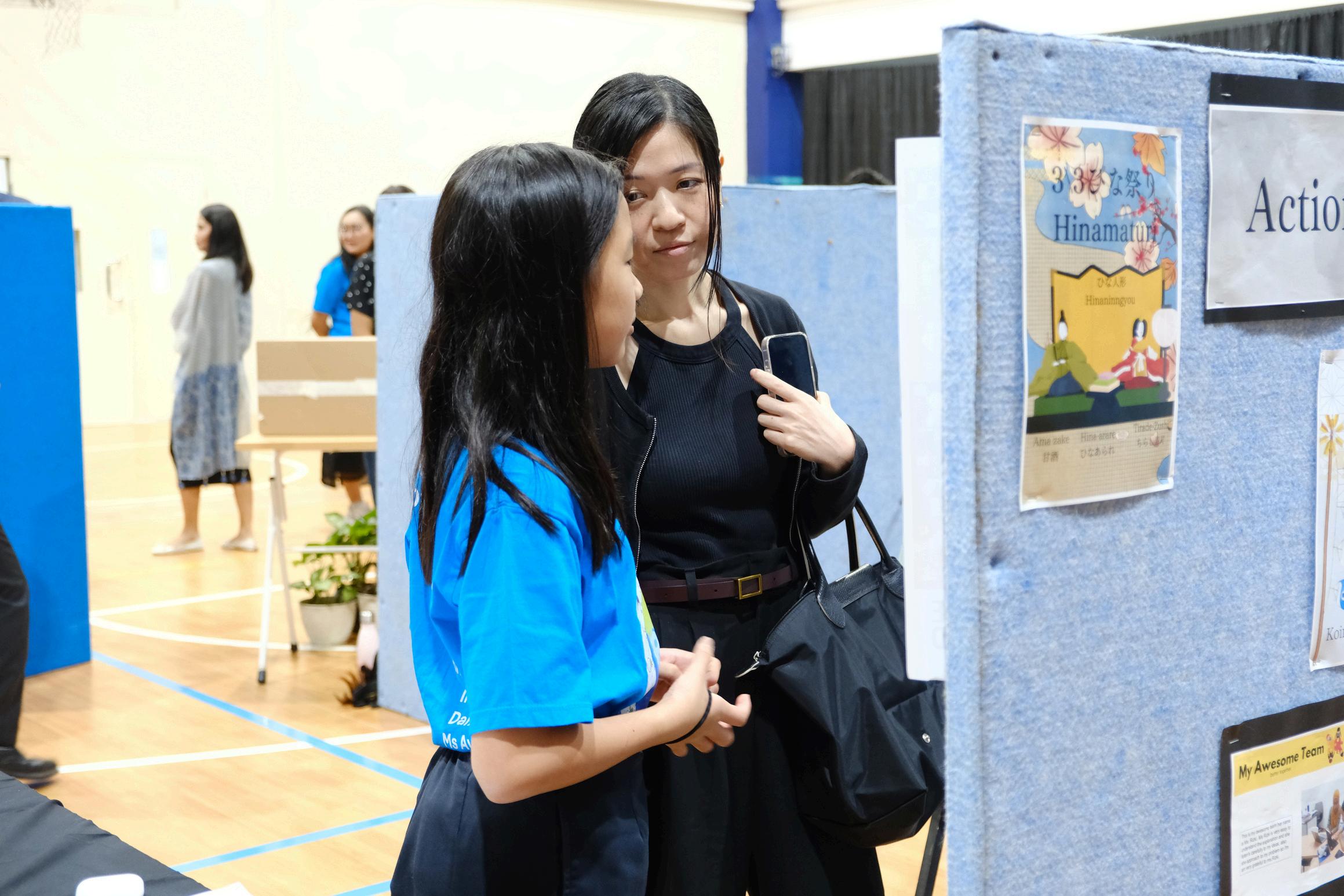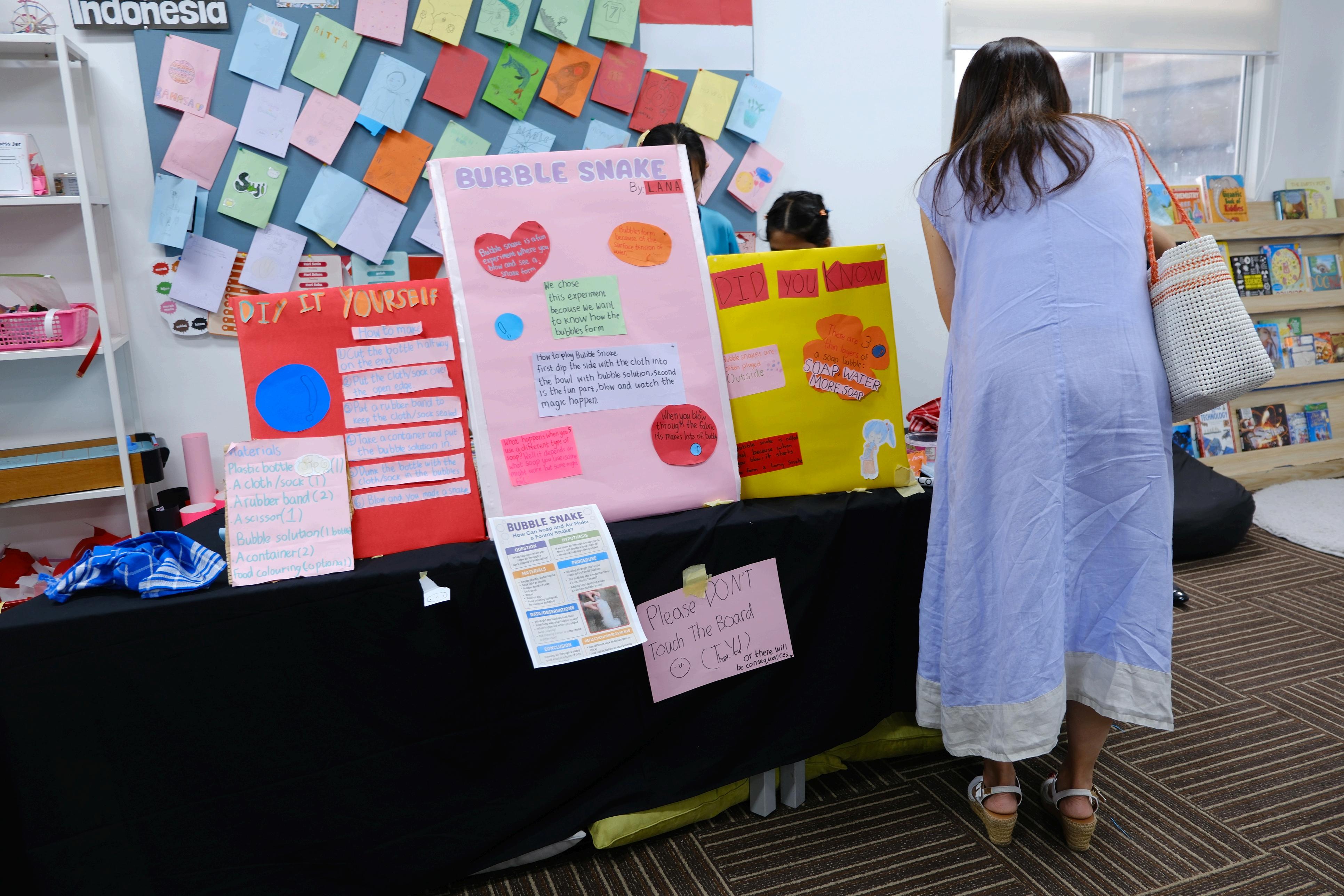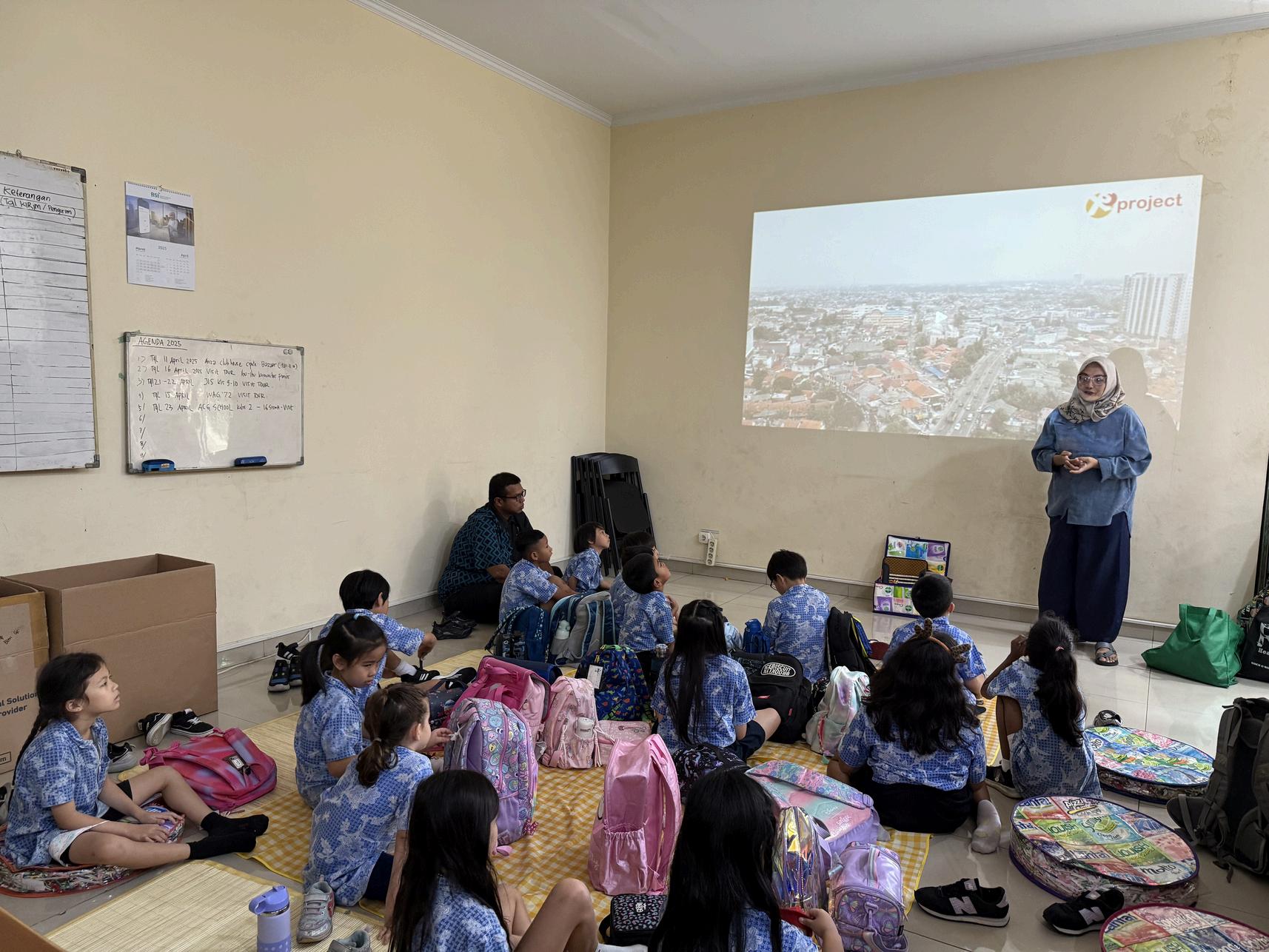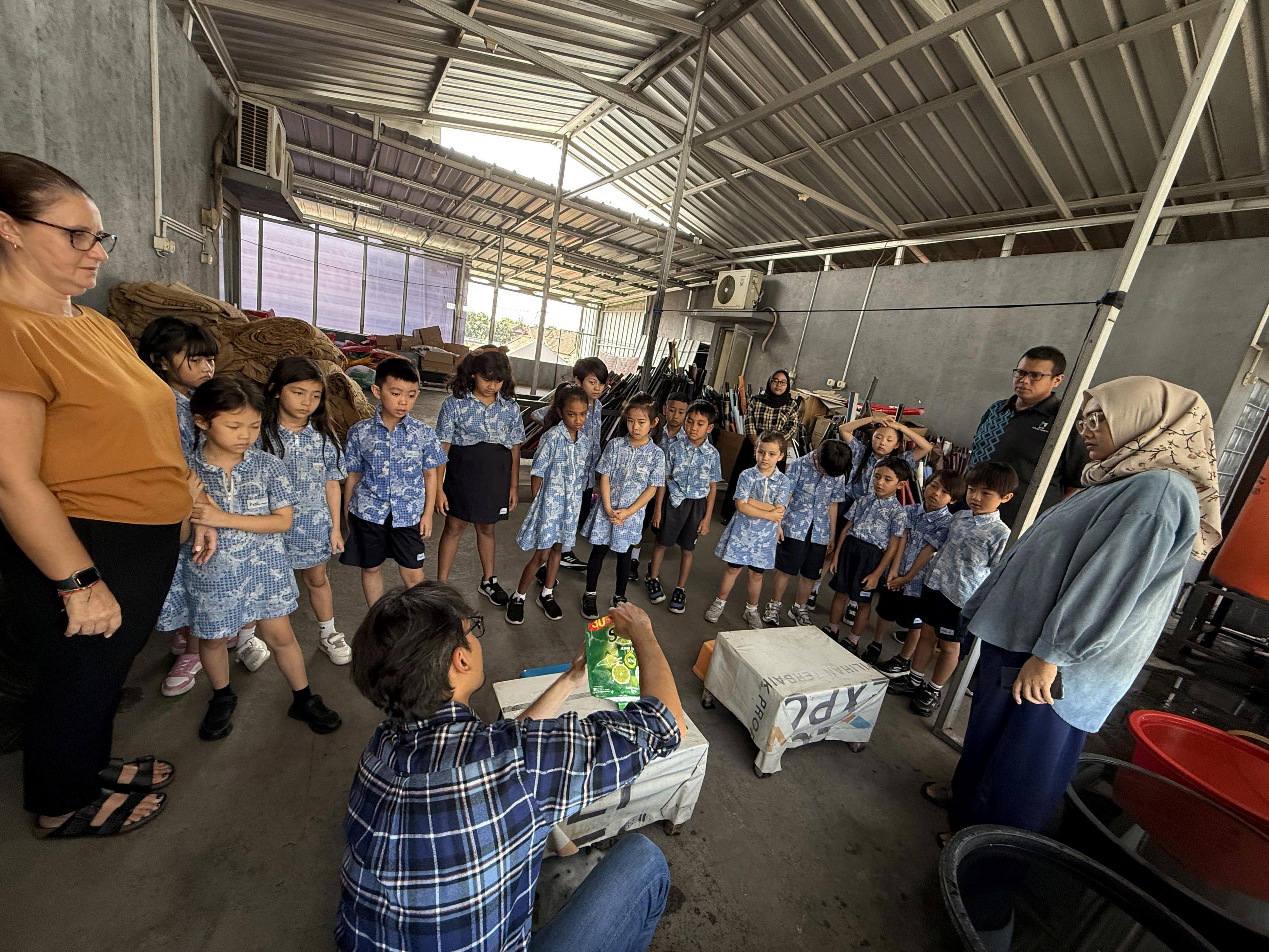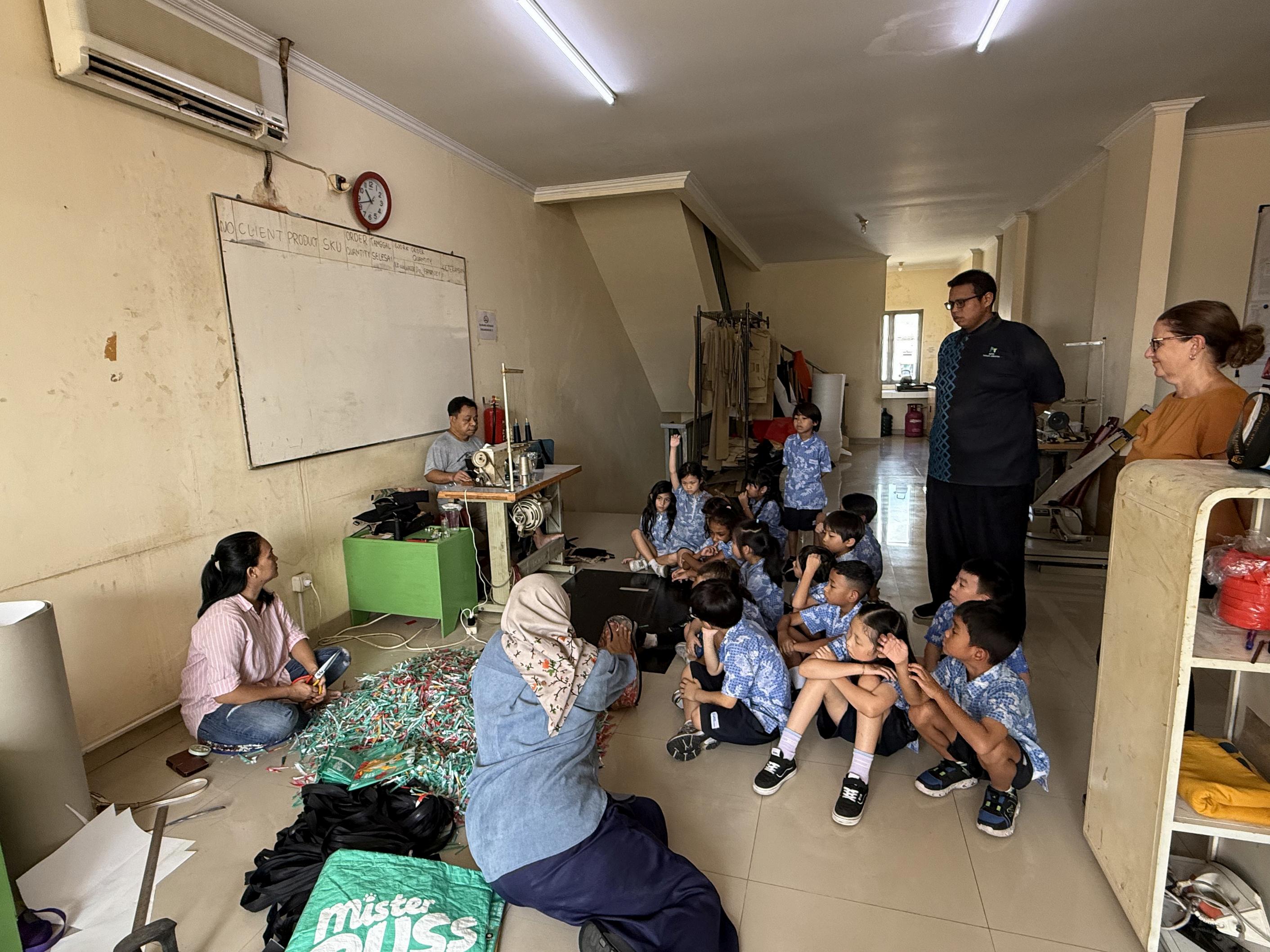FROM THE PRINCIPAL
Hi, everyone, and welcome
to Literacy Week !
This week, we celebrate the power of stories, language, and creativity. Literacy connects us to cultures, traditions, and ideas from around the world, and today, we will see this come to life through wonderful performances by our students.
We are delighted to present: A drama performance of Malin Kundang, a well-known Indonesian folktale. A beautiful song, Kembanglah Bungo Parawitan, performed by our Year 4 students. A special collaboration between Year 3 and Year 5, singing Oo Ibu dan Ayah, a heartfelt tribute to parents.
A huge thank you to our parent volunteers and all our dedicated teachers and staff who have helped make this event possible. Your support ensures that our students continue to develop a love for reading, storytelling, and the rich traditions of literacy.
Let’s enjoy the performances and celebrate the magic of words together!
Myles D’ Airelle Principal of ACG School Jakarta
Carmen Murray Vice Principal of ACG School Jakarta
The Importance of Social and Emotional Learning and how we do it at ACG.
Social and emotional learning (SEL) is the process of developing the knowledge, attitudes and skills necessary to understand and manage emotions, set goals, feel empathy, establish positive relationships and made responsible decisions.
Within Social and Emotional Learning, we focus on developing five key areas: Self-awareness: Recognising and understandings one ’ s own emotions, strengths and weaknesses.
Self-management: Regulating emotions, behaviours and impulses effectively. Social awareness: Understanding the perspectives and emotions of others and appreciating diversity.
Relationship skills: Building and maintaining positive relationships, communicating effectively and resolving conflicts constructively and meaningfully Responsible decision-making: Making ethical and constructive choices, considering consequences and acting responsibly.
Why does Social and Emotional Learning Matter
SEL is crucial for academic success, overall well-being and positive social interactions. It helps individuals cope with challenges, build resilience and develop strong relationships. SEL skills are essential for navigating complex social situations and making responsible choices. SEL is integrated into our school curriculum which means ALL teachers at ACG School are social and emotional teachers. Social and Emotional learning can lead to improved academic performance, reduce behavioural problems and enhanced social skills
Some areas of influence are:
Learning to identify and express emotions in ourselves and others appropriately.
Developing empathy for others by understanding their perspectives. Learning to resolve conflicts peacefully and constructively. Make responsible decisions based on ethical principles. At ACG school we intentionally teach and encourage in our students a growth mindset rather than a fixed mindset. A growth mindset is one of reflecting on our mistakes and learning to look for ways to improve or fix our mistakes. Someone with a growth mindset is one who understands that mistakes are opportunities for learning.
A fixed mindset is one where we are uncomfortable to reflect on our learning or mistakes. It can often be seen as easily giving up and not wanting to improve.
We approach ‘ poor ’ choices as mistakes at ACG. We all make mistakes. It is ok to make a mistake, however we also need to fix our mistake. We don’t always force a child to say ‘ sorry ’ either. This can often be rehearsed and lack meaning. When we approach a mistake like hurting my friend, we run through a reflection process whereby we scaffold the child to a place where they think about their choice from the other child’s perspective. (Learning empathy).
We validate any emotions that are being felt “I can see by your face you are sad” … than we offer help “help me understand why you are feeling sad”. More often than not, the child will open up because we are not shaming them for feeling what they are feeling. This also applies for feeling angry, or worried. This reflective process is a restorative process where we are focusing on teaching the child to learn empathy, and take responsibility for their choice or their mistake.
It is really important that the child comes up with an idea on how to fix their mistake. We have an array of ideas that are presented to children. Offering to get the child I hurt a tissue is a way of helping the child and fix my mistake
Going over and putting my arm around the child is another. Coming up with the idea of sitting with them at lunchtime is another. The ultimate goal is for the child to intrinsically think of a strategy to fix their mistake by helping to make the person they hurt feel happy again or better.
Another way is an ACG “Happy Card”. This is just another strategy to fix a mistake, put myself in another’s shoes (develop empathy) and intrinsically think of something – however, as it involves recording the child’s ideas down on paper (I’m drawing a playground because that makes me feel happy) which almost enables the child to commit to this because I came up with the idea, I drew a picture that I know will make ?? feel happy and I’m writing my name and a message (scribed by the teacher).
We finalized the process by giving the card to the person we hurt. There are many strategies that can be used as restorative practices but the most important part of this to note is the process of reflection. The child is scaffolded through a reflection that leads them to hopefully make better decisions.
This whole process also encourages children to solve their own problems and builds essential life skills, fosters independence, and boosts selfconfidence, ultimately preparing them for future challenges and success
Here's a more detailed explanation of why encouraging children to fix their own mistakes is beneficial:
Develops Problem-Solving Skills:
When children are given opportunities to find solutions, they learn to think critically, analyze situations, and come up with creative solutions
Promotes Critical and Creative Thinking: Problem-solving encourages children to think outside the box and explore different approaches, fostering creativity and critical thinking skills.
Boosts Self-Confidence and Independence:
Successfully solving problems builds a child's confidence in their abilities and fosters a sense of independence and self-reliance.
Enhances Resilience:
Learning to overcome challenges and find solutions helps children develop resilience, allowing them to bounce back from setbacks and persevere through difficulties
Teaches the Value of Perseverance:
The process of problem-solving often involves trial and error, teaching children the importance of persistence and not giving up easily.
Prepares for Future Success:
Strong problem-solving skills are crucial for academic, personal, and professional success, as they equip children with the ability to navigate complex situations and find solutions.
Fosters a Growth Mindset:
By viewing challenges as opportunities for learning and growth, children develop a growth mindset, believing that they can improve and succeed through effort and perseverance
Encourages Asking for Help When Needed: While encouraging independence, it's also important to teach children when and how to ask for help, fostering healthy relationships and collaboration.
Kieran Pascoe
IBDP Coordinator of ACG School Jakarta
DP Update – A busy time for DP students!
Dear Parents and Guardians,
Our Year 13 students are entering one of the most intense periods of their IB journey as they prepare for their second Mock Examination Session. Parents, please check your email for updated mock examination dates. These exams are a crucial opportunity to refine exam techniques and consolidate learning ahead of the final IB assessments Students should be using feedback from their first mock exams to target areas for improvement, adjust study strategies, and strengthen their understanding of key concepts
At the same time, students are finalizing their Internal Assessments (IAs) for submission to the IB, marking an important milestone in their academic progress.
Completing these IAs to the highest possible standard is essential, as they contribute significantly to final IB grades
Looking ahead, we are excited for the Visual Arts Exhibition, which will take place in the last week of term. This is always a highlight of the IB Diploma Programme, allowing our talented Visual Arts students to present their creative work to the school community.
Alongside this, the Theory of Knowledge (TOK) Exhibition will showcase students’ thought-provoking explorations of knowledge and its real-world applications. We encourage all parents to attend and support our students in these significant academic milestones.
Kieran Pascoe
IBDP Coordinator of ACG School Jakarta
YEAR 12 UPDATE
Year 12 students have just completed their Collaborative Science project, an exciting opportunity that challenged them to apply scientific principles in a team setting. A huge thank you to Ms. Parker and the Science team for their support in guiding students through this experience. This project not only strengthened their understanding of key concepts but also built essential teamwork and problemsolving skills It was great to see the results of their learning in action as part of the Science Olympiad.
As we move further into the term, students should now be focusing on developing strong study habits and consolidating their subject knowledge. While the final IB exams may seem far away, building a solid foundation now will be crucial for long-term success. Several subjects are beginning internal assessment work, so students must stay organized and proactive in meeting deadlines.
Another major focus for Year 12 Diploma students is the Extended Essay (EE). By this stage, students should have met with their EE
I’d also like to welcome our new DP Teachers who have already made an excellent start to the year, both with our continuing and new students Our new teachers are Ms Reese Mattison (DP Visual Arts), Ms. Shinna Hutami (DP Chemistry), Mr Alvince Adoyo (DP Mathematics and Chemistry), Mr. Chris England (DP English A), Mr Narinder Kumar (DP Physics) and Mr. Peter Park (DP Mathematics)
I hope that you all get a chance to meet with them this term and make sure you arrange a time with them in our first Parent Teacher Student Conference, early Term 2.
I hope that everyone is doing well and please reach out if your child requires any support.
Kind regards,
Mr. Kieran Pascoe IBDP Coordinator
























































